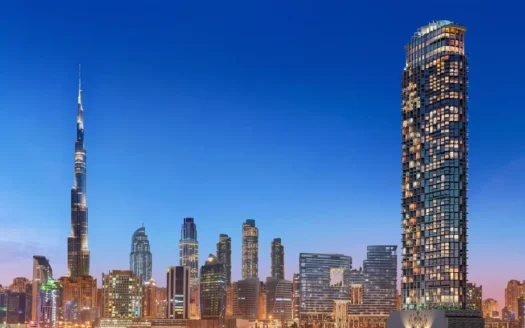Ultimate FAQ: Buying Property in Dubai (Your Top Questions Answered)
Thinking of purchasing real estate in Dubai? This FAQ addresses the most pressing queries—covering ownership rules, fees, financing, and more. Whether you’re a first-time buyer or an experienced investor, these answers will pave the way for a successful purchase.
1. General Questions
Q1: Are foreigners allowed to buy property in Dubai?
Answer:
Yes. Dubai permits foreign nationals to own freehold property in designated zones. Since 2002, this policy has attracted global investors seeking a tax-efficient, fast-growing real estate market. Popular freehold communities include Dubai Marina, Downtown Dubai, and Palm Jumeirah.
Q2: What are freehold areas in Dubai?
Answer:
Freehold areas are specific districts where non-UAE nationals have full ownership rights over the property and the land. Buyers can sell, lease, or pass on the asset without major restrictions. This appeals to those wanting complete control and long-term security for their investment.
Q3: What about leasehold properties in Dubai?
Answer:
Leasehold means owning the right to a property for a set term—often 99 years. After that period, ownership reverts to the original freeholder. Leasehold units may be cheaper, but come with limitations on reselling, inheriting, or modifying the property.
Are you ready to invest? What is your budget?
2. Costs & Fees
Q4: Explain the Dubai Land Department (DLD) fee (4%).
Answer:
Dubai’s Land Department typically charges 4% of the property’s sale price as a transfer fee. This one-time payment registers the property in the buyer’s name. While customarily paid by the buyer, it’s sometimes negotiable. Developers of off-plan projects occasionally run promotions waiving this fee to attract buyers.
Q5: Are there additional or hidden charges when buying property in Dubai?
Answer:
- Agency Commission (2–5%): Paid to the real estate broker.
- Trustee/Transfer Office Fees: A fixed amount covering legal paperwork.
- Mortgage Registration Fee (~0.25% of the loan): Only applies if you finance your purchase.
- Annual Service Charges: Recurring fees for building amenities, security, and maintenance.
- Developer/Admin Fees: Off-plan deals may include No Objection Certificate (NOC) fees or other administrative costs.
3. Mortgages & Financing
Q6: Can non-residents get a mortgage in Dubai?
Answer:
Yes. Several UAE banks offer mortgages to non-residents, though terms might be stricter (e.g., higher down payments or interest rates). Applicants must usually provide a valid passport, proof of income, and demonstrate good credit standing.
Q7: How does off-plan financing in Dubai work?
Answer:
Off-plan properties are sold before or during construction. Developers often provide phased payment schedules (like 40% before completion, 60% on handover). Banks may also finance off-plan, but only if the project and developer meet certain criteria (e.g., an approved build timeline and escrow accounts to protect buyers).
4. Residency & Visa Topics
Q8: Does owning property in Dubai grant a residency visa?
Answer:
It can, but not automatically for every property. The Dubai government offers property-linked visas if your investment meets a specific value threshold and is fully paid. Depending on your property’s worth, you might be eligible for a 2- or 5-year investor visa. Always verify up-to-date rules with official sources like the General Directorate of Residency and Foreigners Affairs (GDRFA).
Q9: What are the requirements for a property investor visa in Dubai?
Answer:
While details can vary over time, the general criteria include:
- A minimum property value (historically around 1 million AED).
- Full ownership or no outstanding mortgage.
- Proof the unit is ready for occupancy (not just land).
Visas tied to property investment typically permit renewal, provided you still meet the eligibility conditions.
5. Market Tips & Investment Insights
Q10: Which neighborhoods in Dubai yield the best rental returns?
Answer:
Districts like Dubai Marina, Business Bay, and Jumeirah Village Circle (JVC) frequently deliver rental yields of 6–8% or more. Emerging areas (e.g., parts of Dubailand) can sometimes see even higher returns due to lower purchase prices, but tenant demand and infrastructure availability play crucial roles.
Q11: Should I purchase a completed or off-plan property in Dubai?
Answer:
- Completed Properties: Instant handover, immediate rental income, and fewer uncertainties.
- Off-Plan: Potentially lower prices, phased payments, and capital appreciation upon handover. On the downside, construction delays and developer reputation should be weighed carefully.
Q12: What are some ways to reduce investment risks in the Dubai real estate market?
Answer:
- Research Developer Track Records: Assess past projects for quality and punctual delivery.
- Use RERA-Registered Agents: Helps ensure you follow legal protocols and avoid scams.
- Account for Additional Costs: Budget for DLD fees, maintenance charges, and possible vacant periods if leasing.
- Stay Informed: Keep an eye on new regulations, large-scale project launches, and changing market conditions.
6. Actionable Steps & Next Moves
- Clarify Your Goals: Whether it’s personal residence, rental income, or long-term capital growth.
- Shortlist Areas: Compare freehold zones based on price, connectivity, amenities, and investment history.
- View Properties or Show Units: Assess location, quality, and developer reputation.
- Negotiate & Finalize: Always check fees in writing and consult a lawyer or legal advisor for contract review.
- Complete Registration: Pay the 4% DLD fee (if not waived) and secure your title deed at a trustee office.
7. Conclusion
Buying property in Dubai offers an array of opportunities—ranging from attractive rental yields and capital appreciation to potential investor visas. Yet success demands an understanding of freehold vs. leasehold, factoring in DLD and service fees, and choosing between ready or off-plan developments.
Ready to take the next step?
- Define your budget, property type (apartment, villa, off-plan), and investment horizon.
- Partner with RERA-approved agents and stay updated with official resources like the Dubai Land Department.
- Keep a long-term perspective to maximize gains and navigate market shifts effectively.
By addressing these FAQs and planning carefully, you’ll be well on your way to making a sound real estate purchase in the vibrant city of Dubai.







